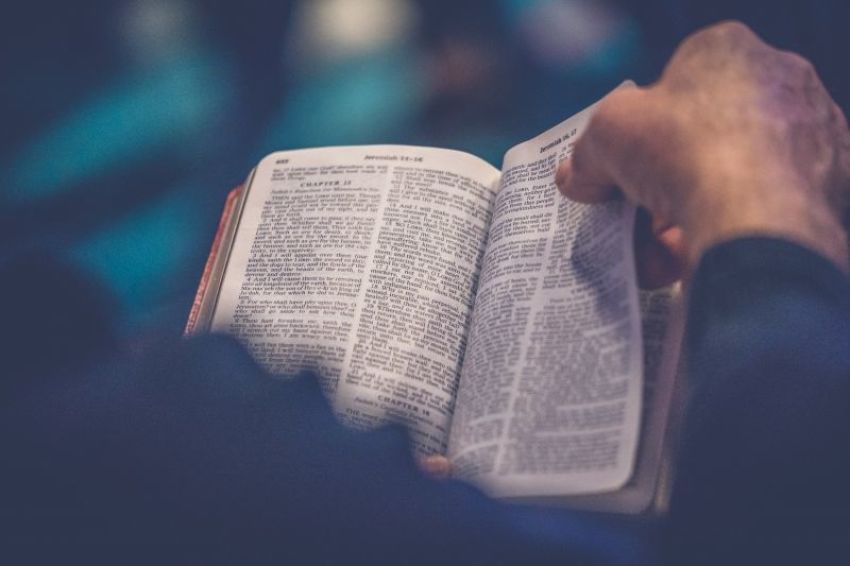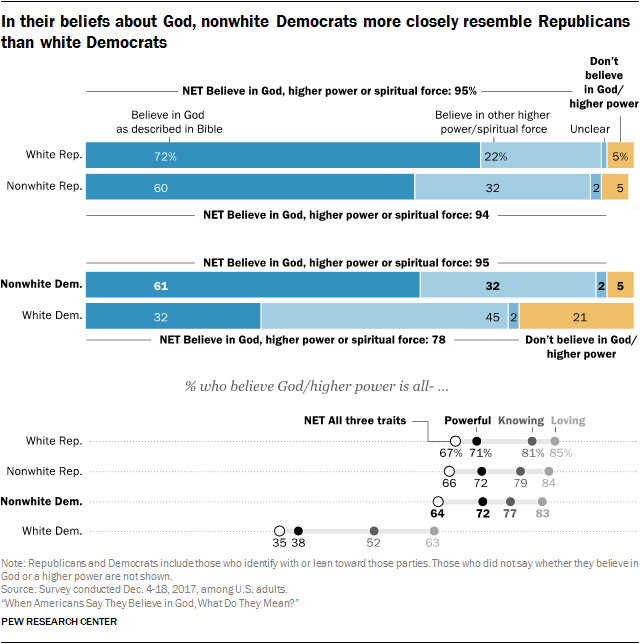Only Slim Majority of Americans Believe in God of Bible, Numbers Decline Among Gen X, Millennials

Although some 80 percent of Americans say they believe in God, only a slim majority of the nation's approximately 327 million people believe in God as described in the Bible, according to results of a new study released by the Pew Research Center. And among those younger than 50, belief in the God of the Bible drops lower than 50 percent.
The findings from the survey of more than 4,700 adults conducted nationwide between Dec. 4–18, 2017, reveal that one-third of Americans say they do not believe in the God of the Bible, but believe there is some other higher power or spiritual force in the universe. Applying these results to the general population, that translates to approximately 109 million people who believe in a higher power that is not the God of the Bible.
Only 56 percent of the people surveyed indicated that they believe in God "as described in the Bible" and the strongest supporters of this response were Christians who self-identified as members of the historically black Protestant and evangelical traditions. Some 92 percent of those who identified with the historically black Protestant tradition said they believe in God as described in the Bible while 91 percent of those who identified as evangelicals support that position. These groups also overwhelmingly supported the view that God is all-loving, all-knowing and all-powerful.
Smaller majorities of mainline Protestants and Catholics also indicated faith in the biblical God but significant minorities of Catholics, 28 percent, and mainline Protestants, 26 percent, indicated that they believe in a higher power or spiritual force, which is not God as described in the Bible.
Another significant finding from the study also showed that young adults were far less likely than their older counterparts to say they believe in God as described in the Bible.
While just over 66 percent of adults 50 and older subscribed to faith in the God of the Bible, only 49 percent of adults in their 30s and 40s supported this position. Some 43 percent of adults younger than 30 shared this view which is almost equal to the 39 percent of adults 18–29 who told researchers they believe in another higher power.

The study also found that more educated Americans are less likely to say they believe in the God of the Bible. Just over 66 percent of American adults with a high school education or less say they believe in the biblical God. Among those with some college education that number drops to 53 percent, and among college graduates it drops even further to 45 percent.
Faith in the biblical God was also starkly divided along party lines mainly among whites. Some 70 percent of American adults who identified as Republican or leaned toward that party supported faith in the God of the Bible, including 72 percent of whites.

Only 45 percent of those who identified as Democrats or lean Democratic supported that position, with just 32 percent of white Democrats saying they believe in the God of the Bible.
White Democrats also differed starkly in their faith from nonwhite Democrats. Some 61 percent of nonwhite Democrats said in the survey that they believed in the God of the Bible, which is approximately the same as the faith professions of nonwhite Republicans.
Democrats were also found to be more likely to believe in a higher power other than the God of the Bible. They were also more likely to say they don't believe in any higher power or spiritual force in the universe.
Results from a Gallup survey published about a year ago showed that for the first time in 40 years, the share of Americans who believe the Bible is "the actual word of God, and is to be taken literally, word for word," 24 percent, did not outpace the number of skeptics 26 percent, who view it as "a book of fables, legends, history and moral precepts recorded by man."



























